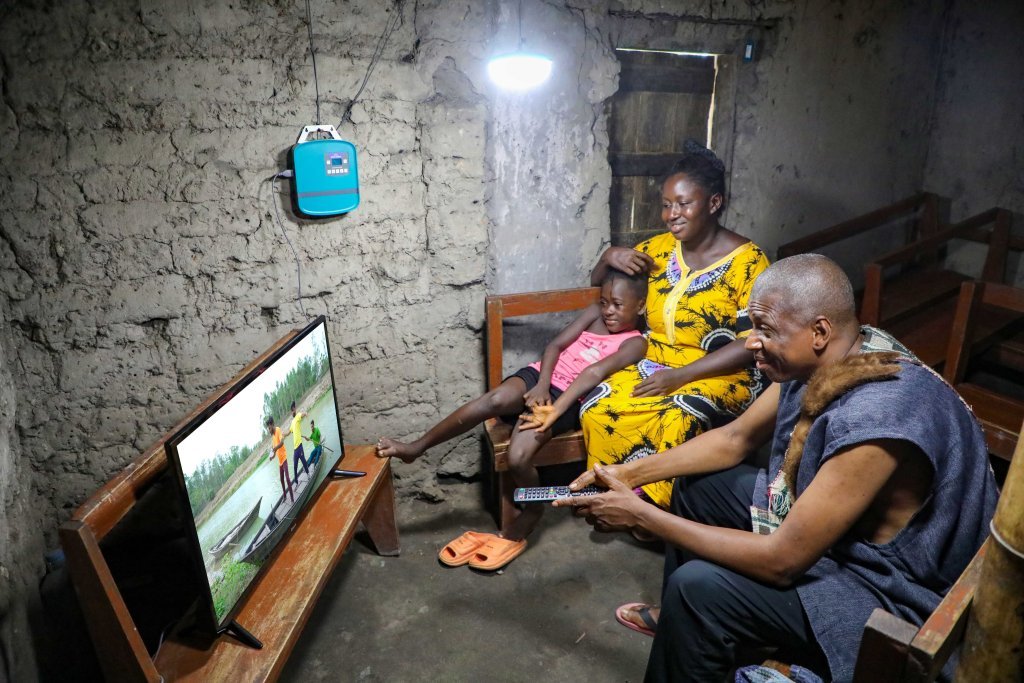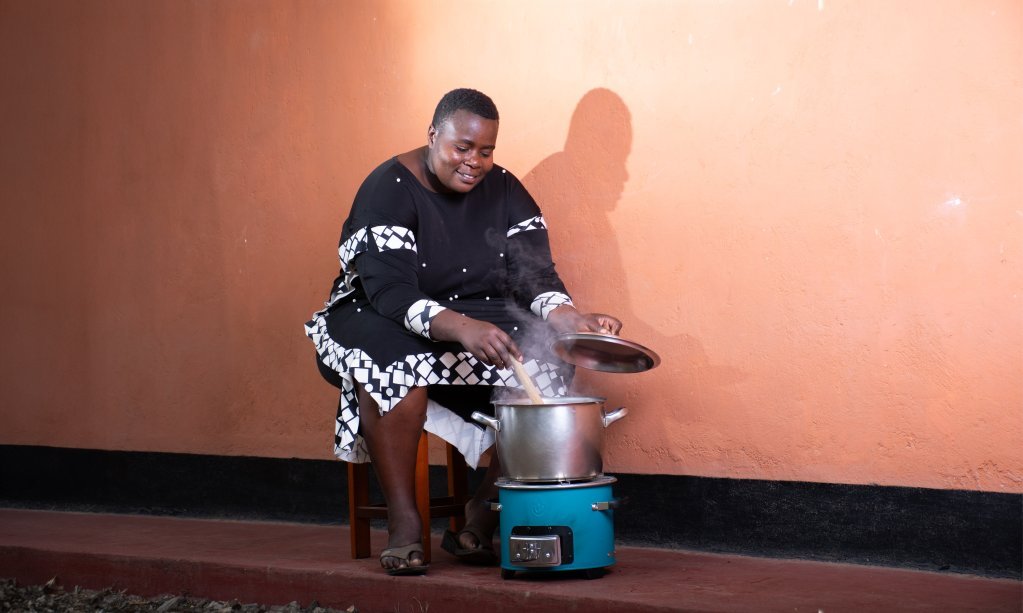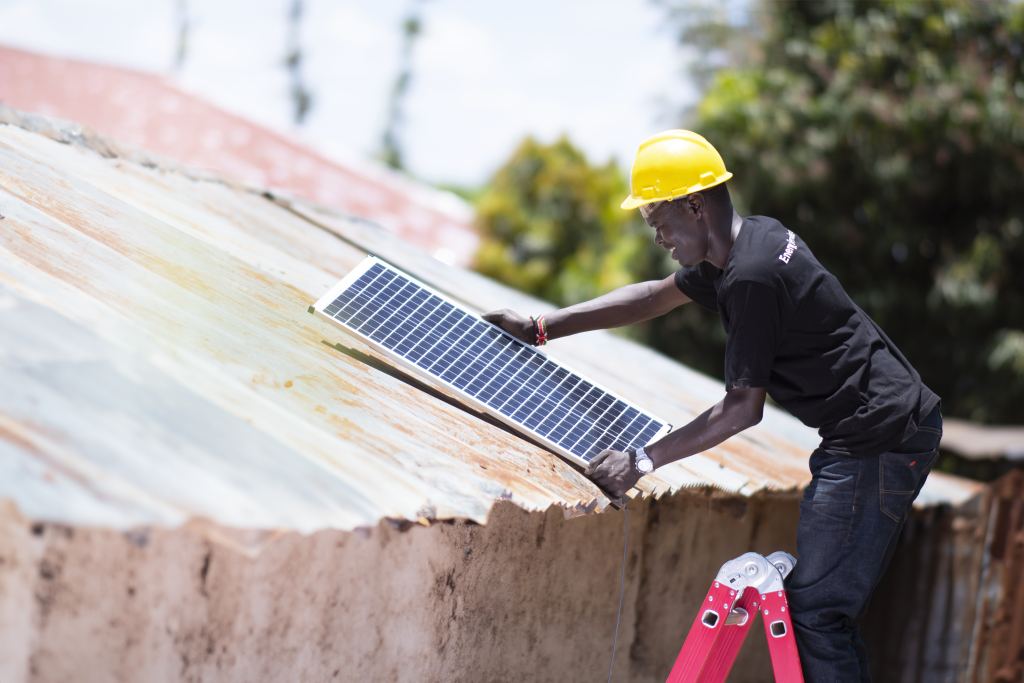OGEF finds innovative solutions to improve energy access in Africa
The fund is empowering local entrepreneurs to provide energy access to people living off-the-grid in Sub-Saharan Africa. Debt financing in local currencies has supported many innovative business ideas.
Over half of the people in Sub-Saharan Africa lack reliable access to energy. The Off-Grid Energy Access Fund (OGEF) helps solve this problem by providing financing to companies bringing energy to people living off the grid.
“With rapid population growth in Africa, the percentage of people with access to power is not increasing at the rate we need it to,” explains Alix Graham, the Managing Director of Cygnum Capital. “We are in danger of falling significantly short of the SDG target to provide affordable, reliable, sustainable and modern energy for all.”
The USD 115 million-OGEF is part of AfDB’s Facility for Energy Inclusion platform, which mobilises capital markets for novel energy access ideas. It uses blended finance: public and private funds working together for a common objective. OGEF is managed by Cygnum Capital, a UK-regulated investment firm specialising in innovative financial solutions in frontier and emerging markets.
Local currencies for local solutions
The fund provides debt financing to companies with solutions for off-grid energy access. They partner with local financial institutions to be co-lenders. They generally lend the equivalent of USD 2-10 million for 24-60 months in local currencies.
“It’s important for these companies to access local currency financing, particularly when they operate in more fragile economies,” Graham explains. “For example, one of our portfolio companies is Yellow Solar, who operates in Malawi. Malawi devalued the kwacha 25% against the dollar in May 2022, and then devalued it another 44% in November 2023. That would have been a huge blow to a company making sales in kwacha but paying back loans in dollars.”
Yellow Solar offers a variety of home solar solutions, as do other OGEF-financed companies like Bboxx, d.light and Easy Solar. At the time of writing, OGEF had loaned to fifteen companies operating in thirteen countries.
“Having access to a reliable source of clean energy can change lives,” says Graham. “With energy, people can study at night, receive information and entertainment through smartphones and TVs, and have refrigeration to reduce food waste.”

In Sub-Saharan Africa, over half of the people don't have access to energy. Photo: BioLite
Innovative business ideas
Energy can also improve incomes. Graham mentions a few of the entrepreneurs who rely on off-grid power provided by OGEF portfolio companies:
“Tailors can power their sewing machines and have light to work,” she says. “I know of farmers that use hotlamps for their chickens. Some businesspeople set up local cinemas. They show movies and serve food, or act like a sports bar and show big games for the community.”
Many of the companies offer a variety of products and services for different needs. For example, Bboxx offers televisions, lighting, torches and radios. SunCulture is a Kenyan-based company most famous for their solar pumps for irrigation, but they also sell solar lighting kits and televisions powered by the sun and batteries.
“BioLite is another interesting company; they are constantly innovating,” Graham says. “They develop clean cooking, charging and solar lighting products for off-grid households across sub-Saharan Africa. They also have a separate clean energy product line for those off-grid by choice, such as campers in the US and Europe.”

BioLite develops clean cooking and solar lighting products in Africa. Photo: BioLite
First energy access for many
Cygnum Capital has commissioned 60_decibels, a social impact measurement company, to study the impact their portfolio companies have on end-users. Nearly 75% of customers surveyed say they did not previously have access to the energy product or service they purchased. About 61% of respondents say they see significant improvement in their quality of life because of the energy, such as cost savings, improved energy access, lifestyle and access to entertainment, ability to work or study, increased autonomy and the ability to charge devices.
“We believe what we are doing is absolutely necessary to solve the energy access crisis,” says Graham. “Focusing on off-grid access is one part of the solution, along with expanding grids and building minigrids.”
Access to energy has an immediate impact on cooking, often taken care by women. The 60_decibels survey found 67% of cookstoves sold by portfolio companies were bought by women; 65% of these women reported the stoves “very much decreased” the time they spent cooking. Other research found 9,482 jobs for women were supported by the fund’s investments.
NDF has invested USD 7 million into OGEF as well as provided a EUR 500,000 grant for technical assistance to support deal structuring and capacity development. Other investors include the African Development Bank (AfDB), the Global Environment Facility, KfW, the European Commission and Calvert Impact Capital. Non-profit groups like the Nigerian-based All On, as well for-profit firms such as the American insurer Prudential, have also invested. Supporters include USAID, the UK’s Department for International Development and the Shell Foundation.

Having access to energy improves lives. Photo: BioLite
